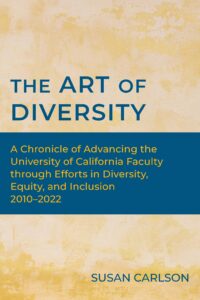Sharing the Fact Sheet
released by the White House on May 23, 2023.
MAY 23, 2023
FACT SHEET: Biden-Harris
Administration Takes New Steps to Advance Responsible Artificial Intelligence
Research, Development, and Deployment
Today, the
Biden-Harris Administration is announcing new efforts that will advance the
research, development, and deployment of responsible artificial intelligence
(AI) that protects individuals’ rights and safety and delivers results for the
American people.
AI is one of the most powerful technologies of our time, with broad
applications. President Biden has been clear that in order to seize the
opportunities AI presents, we must first manage its risks. To that end, the
Administration has taken significant action to promote responsible AI
innovation that places people, communities, and the public good at the center,
and manages risks to individuals and our society, security, and economy. This
includes the landmark Blueprint for an AI Bill of Rights and related executive actions, the AI Risk Management Framework, a roadmap for standing up a National AI Research Resource,
active work to address the national security concerns raised by AI, as well
as investments and actions announced earlier
this month. Last week, the Administration also convened representatives from
leading AI companies for a briefing from experts across the national security
community on cyber threats to AI systems and best practices to secure high-value
networks and information.
Today’s announcements include:
- An updated roadmap to focus federal
investments in AI research and development (R&D): The White House Office of Science and Technology
Policy (OSTP) is releasing a National AI R&D Strategic Plan—updated
for the first time since 2019—a roadmap that outlines key priorities and
goals for federal investments in AI R&D. Developed by experts across
the federal government and with public input, this plan makes clear that
when it comes to AI, the federal government will invest in R&D that
promotes responsible American innovation, serves the public good, protects
people’s rights and safety, and upholds democratic values. It will help
ensure continued U.S. leadership in the development and use of trustworthy
AI systems.
- A new request for public input on
critical AI issues: OSTP
is issuing a Request for Information (RFI) to
seek input on national priorities for mitigating AI risks, protecting
individuals’ rights and safety, and harnessing AI to improve lives. This
RFI will support the Administration’s ongoing effort to advance a cohesive
and comprehensive strategy to manage AI risks and harness AI
opportunities. It complements work happening across the federal government
to engage the public on critical AI issues.
- A new report on the risks and opportunities related to
AI in education: The
U.S. Department of Education’s Office of Educational Technology is
releasing a new report, Artificial Intelligence (AI) and the Future of
Teaching and Learning: Insights and Recommendations,
summarizing the risks and opportunities related to AI in teaching,
learning, research, and assessment. The report recognizes that AI can
enable new forms of interaction between educators and students, help
educators address variability in learning, increase feedback loops, and
support educators. It also underscores the risks associated with
AI—including algorithmic bias—and the importance of trust, safety, and
appropriate guardrails.
In
addition to these new announcements, the White House is hosting a listening
session with workers today to hear firsthand experiences with employers’ use of
automated technologies for surveillance, monitoring, evaluation, and
management. The listening session will include workers representing diverse
sectors of the economy, including call centers, trucking, warehousing, health
care, and gig work, as well as policy experts, researchers, and policymakers.
This listening session follows an RFI released by OSTP earlier this month
to advance the Administration’s understanding of the design, deployment,
prevalence, and impacts of automated technologies that monitor and track
workers.


